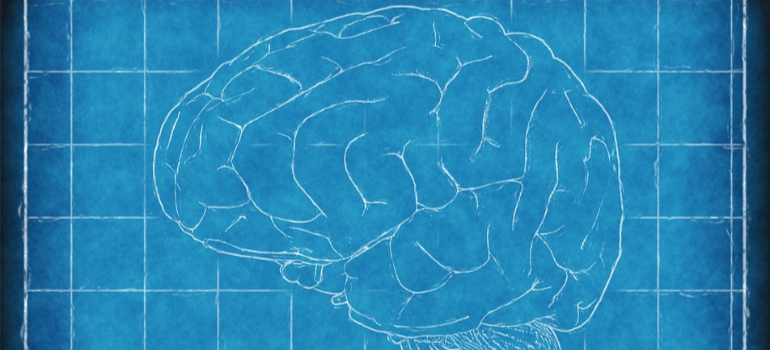How Drinking Affects Memory
Get Help Now
Drinking affects memory in profound ways, with both immediate and long-term consequences. Alcohol use disorders (AUD) can lead to severe impacts on mental and physical health, posing significant challenges to individuals and society as a whole.
The effects of excessive drinking on memory function are particularly concerning, as alcohol disrupts the brain’s intricate processes involved in encoding, storing, and retrieving information. Short-term memory impairment during intoxication is a common experience, but the ramifications extend far beyond the immediate effects. Chronic alcohol use can result in structural changes within the brain, leading to persistent cognitive deficits and memory decline. As the premier alcohol rehab center in Lantana, we are no strangers to the effects alcohol consumption can have.
In this blog post, we will delve into the intricate relationship between drinking and memory, exploring the various factors that contribute to these effects and discussing strategies to protect memory function in the face of alcohol consumption.
The effects of alcohol use disorder (AUD) on health
Initially, alcohol use disorder (AUD) exerts a detrimental impact on both physical and mental health, exacerbating the risk of various health conditions and impairing memory function. This is particularly concerning, as NIAAA reports that AUDs remain prevalent across different age groups in the US.
The physical health consequences of AUD are wide-ranging and include:
- Liver disease,
- Pancreatitis,
- Cardiovascular disorders,
- Compromised immune system,
- Increased susceptibility to various cancers.
Moreover, excessive drinking takes a toll on mental well-being, contributing to the development or worsening of mental health conditions such as:
- Depression,
- Anxiety disorders,
- Increased risk of suicide.
These mental health implications further contribute to the complex relationship between AUD and memory impairment. Alcohol’s neurotoxic effects disrupt the intricate processes involved in memory formation and retrieval, leading to short-term memory deficits and potential long-term memory decline. Alcohol withdrawal medication may help treat AUDs themselves, but such effects may be much harder to address.

Immediate effects of alcohol use on memory
Indeed, drinking affects memory in immediate and noticeable ways, particularly during episodes of intoxication. Short-term memory impairment is a common consequence of alcohol use, as it impairs the brain’s ability to encode and retrieve information effectively.
During intoxication, alcohol interferes with the proper functioning of neurotransmitters, the chemical messengers in the brain responsible for transmitting signals between nerve cells. Specifically, alcohol suppresses the activity of glutamate, an excitatory neurotransmitter that deals with for memory formation and learning. This disruption in neurotransmitter balance hinders the encoding of new memories, making recalling recent events or details challenging.
Additionally, alcohol inhibits the release of acetylcholine, a neurotransmitter associated with attention and memory. As a result, attention and concentration become impaired, further impacting memory performance. These immediate effects of alcohol on memory can lead to forgetfulness, difficulty concentrating, and impaired judgment, highlighting the importance of responsible drinking practices to safeguard cognitive function.
By understanding the mechanisms behind the disruption of encoding and retrieval processes and the alteration of neurotransmitter function, individuals can make informed decisions about their alcohol consumption to mitigate the immediate impact on memory.
Long-term effects of alcohol use on memory
The long-term effects of alcohol use on memory are a matter of great concern, as well. Chronic alcohol use can lead to structural changes in the brain, which significantly impact memory function. Healthline finds that such effects are extremely common, appearing in 78% of individuals diagnosed with an AUD.
Prolonged heavy drinking is associated with shrinkage of the hippocampus, a brain region responsible for memory formation and consolidation. This structural deterioration contributes to impaired cognitive functioning and memory deficits in individuals with alcohol use disorders (AUD). As drinking affects memory in this way, memory retrieval becomes challenging, and individuals may experience difficulties in learning new information and retaining it over time.

Furthermore, long-term alcohol abuse increases the risk of alcohol-induced dementia, a severe cognitive impairment characterized by memory decline and other cognitive deficits. This form of dementia is directly linked to the neurotoxic effects of alcohol on the brain, as well as the systemic consequences of chronic alcohol use on overall health.
Should chronic users attempt to quit on their own, delirium tremens may occur as well. This cluster of symptoms will also typically require delirium tremens treatments to overcome, and only exacerbates alcohol consumption’s impact on health.
Blackouts and alcohol amnesia
In addition to the above, blackouts and alcohol amnesia are concerning phenomena that highlight the profound impact of drinking on memory function. Alcohol-induced blackouts are periods of time during which individuals experience memory loss for events that occurred while they were intoxicated.
There are two types of alcohol-induced blackouts: fragmentary (or “brownouts”) and en bloc. Both constitute severe symptoms of alcohol use, and both will require medical detox Florida programs to effectively overcome. Still, their differences bear noting.
Fragmentary blackouts involve partial memory loss, where individuals may have hazy recollections or gaps in their memory. En bloc blackouts, on the other hand, result in a complete inability to recall events, even with prompting or reminders.
Excessive drinking disrupts the process of memory consolidation, impairing the transfer of information from short-term memory to long-term memory storage. This disruption occurs due to the suppression of glutamate, the neurotransmitter responsible for memory formation. The consequences of blackouts extend beyond the immediate memory loss. They can lead to personal and social repercussions, including engaging in risky behaviors, compromised personal safety, damaged relationships, and legal issues.

Factors that affect AUD severity
That said, how drinking affects memory often depends on the severity of an individual’s AUD. Several factors contribute to the severity of alcohol use disorder (AUD), highlighting the complex nature of the condition and its impact on individuals.
- Genetic predisposition and family history play a significant role, as certain genetic variations can increase vulnerability to developing AUD.
- Environmental and social factors also contribute to AUD development, including exposure to alcohol at an early age, peer influence, and societal norms surrounding drinking.
- Co-occurring mental health conditions can influence the severity of AUD. Conditions such as depression, anxiety disorders, and post-traumatic stress disorder (PTSD) are often interconnected with AUD, as individuals may turn to alcohol as a form of self-medication or to alleviate emotional distress. These mental health conditions can exacerbate the severity of AUD, making it more challenging to address and recover from.
Strategies to protect memory function
Having mentioned prevention strategies and interventions, here we may conclude by highlighting the most notable strategies one can adopt to help with memory preservation.
#1 Moderation and responsible drinking habits
First, as drinking affects memory almost immediately, moderation and responsible drinking habits play a vital role in protecting memory function. Limiting alcohol consumption to moderate levels can help minimize the immediate and long-term effects on memory. Setting personal limits and adhering to recommended guidelines for alcohol consumption can help prevent excessive intoxication and the associated memory impairments.
It is also important to pace alcohol consumption, allowing the body enough time to metabolize the alcohol and reducing the risk of overwhelming the brain’s memory processes. Additionally, avoiding binge drinking and spacing out alcoholic beverages can help maintain cognitive function and prevent blackouts or gaps in memory. By adopting responsible drinking habits and being mindful of alcohol intake, individuals can better safeguard their memory function and overall cognitive health.

#2 Changing lifestyle factors
Second, lifestyle factors also play a significant role in protecting memory function and minimizing the impact of drinking on cognitive health. Engaging in regular physical exercise, maintaining a balanced diet, and prioritizing quality sleep are all crucial for supporting optimal brain function. Regular exercise promotes blood flow to the brain, stimulating the growth of new neurons and enhancing memory. A nutritious diet rich in antioxidants, omega-3 fatty acids, and vitamins supports brain health and reduces the risk of cognitive decline.
Naturally, this also includes abstaining from other substances one may be consuming. Marijuana is a notable example of such substances, as marijuana detox Florida programs often have to treat co-occurring addictions to alcohol and marijuana.
Finally, quality sleep is also essential for memory consolidation, as it allows the brain to process and store information effectively. After all, sleep disruptions are another way in which drinking affects memory. Additionally, managing stress levels and engaging in activities that stimulate cognitive function, such as puzzles or learning new skills, can help maintain memory abilities. By incorporating these lifestyle factors into daily routines, individuals can bolster memory function and protect against the potential negative effects of drinking on cognitive health.
#3 Seeking professional help and treatment options for AUD
Lastly, seeking professional help and exploring treatment options for alcohol use disorder (AUD) is a vital strategy in protecting memory function. Professional interventions, such as counseling, therapy, and support groups, provide individuals with the necessary tools and guidance to address their drinking habits and underlying factors contributing to AUD severity.
Treatment options may include behavioral therapies, medication-assisted treatment, and holistic approaches that encompass both physical and mental well-being. By seeking help one receive tailored support, learn coping mechanisms, and develop healthier strategies for managing stress and emotions, ultimately reducing reliance on alcohol.
That said, detox inpatient Florida programs typically work best the sooner the individual turns to them for assistance. Early intervention and treatment for AUD can minimize the long-term impact on memory and cognitive function, fostering a path towards recovery and improved overall well-being.
Conclusion
Drinking profoundly affects memory, as excessive alcohol consumption disrupts the intricate processes involved in memory formation, retrieval, and consolidation.
However, there are strategies available to protect memory function. Adopting responsible drinking habits, incorporating lifestyle factors like exercise and quality sleep, and seeking professional help and treatment for AUD can all play a pivotal role in safeguarding cognitive well-being.